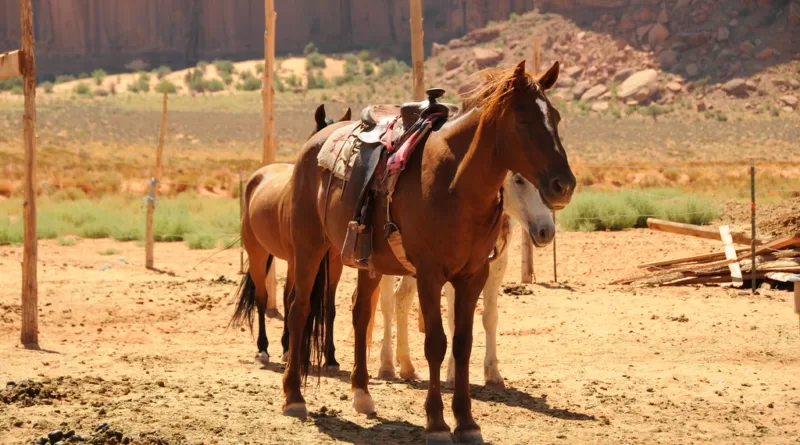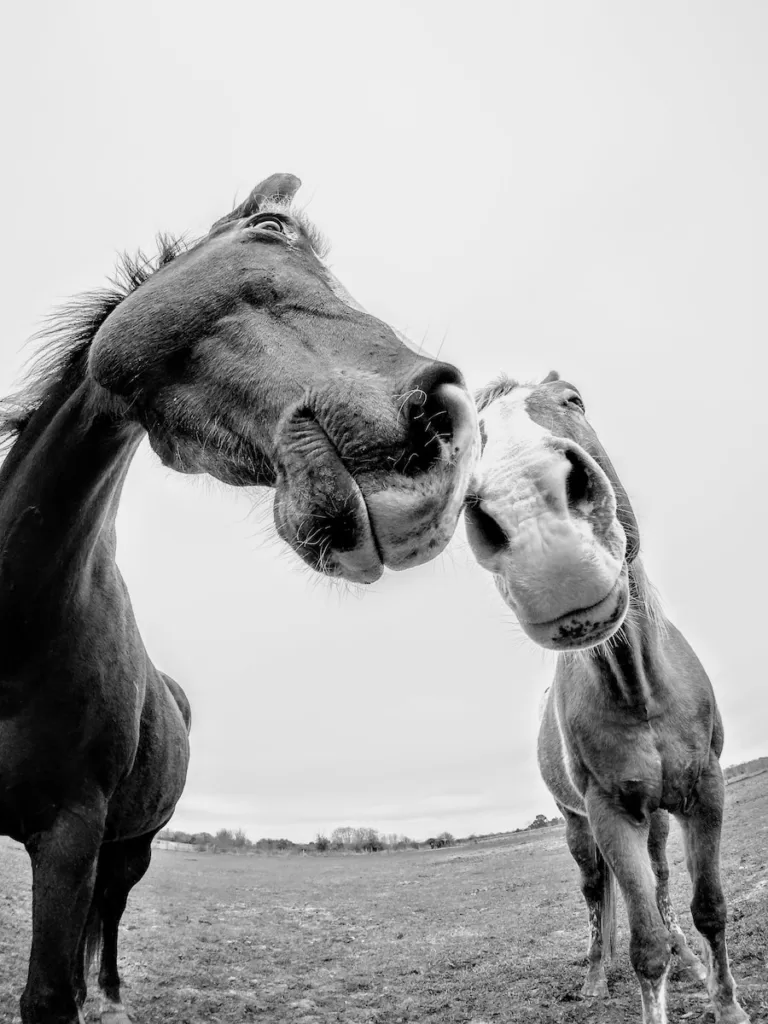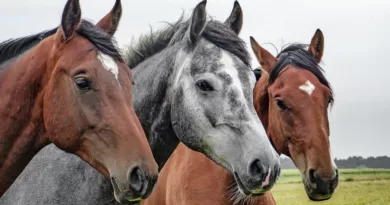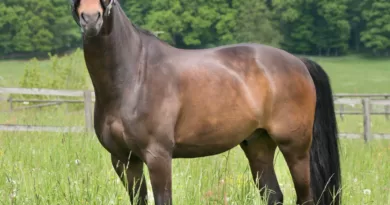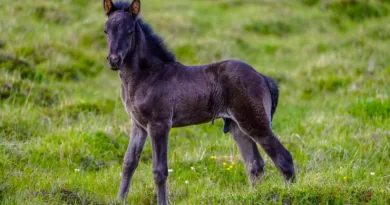Unlocking the Mystery: Average Life Expectancy of a Horse
Horses have been our steadfast companions for centuries, serving as partners in work, sport, and leisure. From majestic stallions to gentle ponies, these creatures have woven themselves into the fabric of human history. Yet, how much do we really know about their lifespan? What is the average life expectancy of a horse? Join us on an equestrian journey as we explore this fascinating topic.
Understanding Equine Longevity
Before we delve into the specifics, let’s paint a broad picture of equine longevity. Horses, like humans and many other species, can live vastly different lifespans depending on various factors. Some horses may only grace us with their presence for a short decade, while others can live well into their twenties or even thirties. The key to understanding their longevity lies in the interplay of genetics, healthcare, nutrition, and lifestyle.
Factors That Influence Lifespan
Genetics
Just as in humans, genetics plays a significant role in determining a horse’s lifespan. Some breeds are naturally predisposed to longer lives, while others may have shorter average life expectancies. For instance, certain pony breeds often outlive their larger counterparts. Breeding practices and the health of a horse’s lineage can also impact how long they will live.
Healthcare
Proper healthcare is paramount for a horse’s well-being and longevity. Regular veterinary check-ups, vaccinations, and dental care are essential components of equine health. Additionally, prompt treatment of injuries and illnesses can make a substantial difference in a horse’s lifespan.
Nutrition
Nutrition is another vital factor. A balanced diet tailored to a horse’s age, activity level, and specific needs can promote a longer and healthier life. Ensuring they receive the right vitamins, minerals, and adequate water intake is crucial.
Lifestyle
The way a horse lives can significantly affect its lifespan. Horses that receive plenty of exercise, mental stimulation, and social interaction tend to fare better in the longevity department. Proper shelter and protection from harsh weather conditions also play a role.
Now that we have a grasp of the fundamental factors influencing equine longevity, let’s get to the heart of the matter: the average life expectancy of a horse.
What Is the Average Life Expectancy of a Horse?
The average life expectancy of a horse can vary considerably depending on factors such as breed, size, and overall care. On average, a horse can be expected to live anywhere from 25 to 30 years. However, it’s important to remember that this is a broad estimate, and individual horses can fall both below and above this range.
Now, let’s address some common questions that often arise when discussing the lifespan of these magnificent creatures.
See Also: How long do horses live? Amazing Facts About Horses’ Life
Frequently Asked Questions
1. Do smaller horse breeds tend to live longer?
Yes, generally speaking, smaller horse breeds tend to have longer lifespans than larger ones. Ponies, for example, are known for their exceptional longevity and can live well into their thirties. Larger breeds, such as draft horses, often have shorter average lifespans.
2. Can a horse’s diet impact its lifespan?
Absolutely. A horse’s diet is a critical factor in determining its lifespan. Providing the right balance of nutrients, quality forage, and proper hydration can significantly extend a horse’s life. Conversely, neglecting their nutritional needs can lead to health issues that may shorten their lifespan.
3. What role does exercise play in a horse’s lifespan?
Exercise is essential for maintaining a horse’s overall health and can contribute to a longer life. Regular exercise helps keep their muscles, joints, and cardiovascular system in good condition. Moreover, it provides mental stimulation, reducing stress and boredom, which can also impact longevity.
4. How can I ensure my horse lives a long and healthy life?
Ensuring your horse lives a long and healthy life involves several key practices:
- Regular Veterinary Care: Schedule routine check-ups and vaccinations with a qualified equine veterinarian.
- Proper Nutrition: Consult with an equine nutritionist to develop a well-balanced diet tailored to your horse’s specific needs.
- Exercise and Mental Stimulation: Provide ample opportunities for exercise and mental engagement through riding, turnout, and interactive toys.
- Safe Shelter: Ensure your horse has a safe and comfortable shelter to protect them from extreme weather conditions.
- Dental Care: Regular dental check-ups are crucial to maintaining good oral health, which can impact a horse’s ability to eat and digest food.
- Preventative Care: Address any health issues promptly to prevent them from escalating into more serious problems.
5. Are there any signs that can indicate a horse’s potential for a longer life?
While there are no foolproof indicators of a horse’s exact lifespan, several signs may suggest a better chance of longevity. These include maintaining a healthy weight, having a glossy coat, exhibiting good dental health, and having a positive disposition. Regular veterinary check-ups can help detect and address potential issues early on.
6. Do wild horses live longer or shorter lives than domesticated horses?
Wild horses, also known as mustangs, typically have shorter lifespans compared to their domesticated counterparts. The challenges of finding food and water, avoiding predators, and enduring harsh weather conditions can shorten the average lifespan of wild horses. Domesticated horses, on the other hand, benefit from consistent care and protection, which can lead to longer lives.
7. What role does the horse’s breed play in its lifespan?
The breed of a horse can indeed influence its average life expectancy. Some breeds are known for their hardiness and longevity, while others may have inherent health issues that shorten their lifespan. For instance, Arabian horses are often associated with longer lifespans, while some draft breeds may have shorter ones.
8. Can dental care impact a horse’s lifespan?
Yes, dental care is a critical aspect of equine health and can significantly impact a horse’s lifespan. Regular dental check-ups and floating (filing down sharp points) of a horse’s teeth help ensure proper chewing and digestion of food, which can prevent dental issues that may lead to weight loss and other health problems.
9. What are some signs of aging in horses, and how can they be managed?
As horses age, they may exhibit signs such as arthritis, dental issues, weight loss, or a decrease in energy. These signs can be managed through appropriate veterinary care, dietary adjustments, and modifications to their exercise routine. Regular monitoring and adjustments to their care plan can help maintain their quality of life as they age.
Exceptional Cases: Horses That Defy the Odds
While the average life expectancy of a horse falls within the 25 to 30-year range, there have been remarkable cases of horses living far longer. These equine centenarians often capture the hearts and imaginations of horse enthusiasts worldwide. One such legendary horse was “Old Billy.”
Old Billy: A Horse for the Ages
Old Billy, born in 1760, holds the Guinness World Record for the oldest horse ever recorded. This incredible horse lived to be an astounding 62 years old! Old Billy was a barge horse from England and spent his life working tirelessly along the canals. His extraordinary longevity remains a testament to the care and work ethic of his time.
Old Billy’s story serves as a reminder that, with exceptional care and a bit of luck, some horses can live far beyond the average life expectancy. While these cases are rare, they remind us of the profound connection that can exist between humans and these magnificent animals.
The Role of Horse Owners and Caregivers
As responsible horse owners and caregivers, we have a crucial role to play in ensuring our equine companions lead long, healthy lives. Beyond the basics of nutrition, healthcare, and exercise, our love and attention are essential elements of their well-being.
Bonding and Companionship
Horses are social creatures that thrive on companionship and bonding. Spending quality time with your horse, whether it’s through grooming, riding, or simply being present, can have a profound impact on their mental and emotional health. Strong bonds often lead to happier and healthier lives for these magnificent animals.
Lifelong Learning
Understanding your horse’s needs and behavior is an ongoing journey. Continually educate yourself about equine care, training, and well-being. The more you know, the better equipped you’ll be to provide the best possible life for your horse.
Compassion in Times of Illness
No matter how well we care for our horses, there may come a time when illness or old age takes its toll. In such moments, it’s crucial to approach their care with compassion and dignity. Consult with your veterinarian to make the best decisions for your horse’s comfort and well-being.
In Conclusion
The average life expectancy of a horse is a range influenced by genetics, healthcare, nutrition, and lifestyle. While the typical lifespan falls between 25 to 30 years, exceptional cases have shown that some horses can live far longer. As horse owners and caregivers, we hold the keys to ensuring our equine companions lead fulfilling and healthy lives.
Remember, the bond between humans and horses is a timeless and cherished one. By providing proper care, love, and attention, we can ensure that our horses thrive and continue to enrich our lives for years to come.
So, whether you’re a seasoned equestrian or simply a horse enthusiast, take pride in your role as a steward of equine well-being. Together, let’s celebrate the majesty and resilience of these remarkable animals.
Enjoyed this article? You May Also Like:
- Learn in 5 minutes about Cryotherapy for Horses
- Penicillin in Horses; Impeccable Guide in 10 minutes
- Excede Antibiotic For Horses, Fantastic Facts in 5 minutes
- The Science of Oxytocin in Horses: How This Hormone Influences Equine Behavior
- Can Horses Swim? Everything You Need To Know About Horse Swimming

